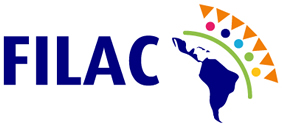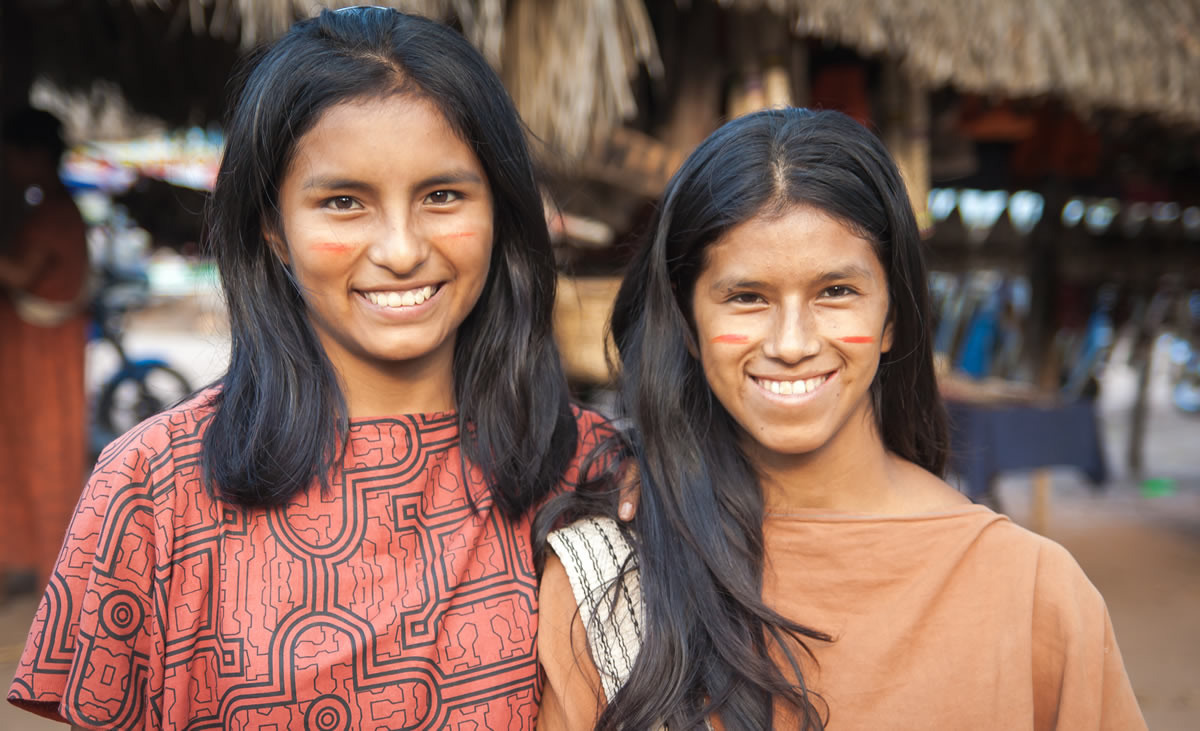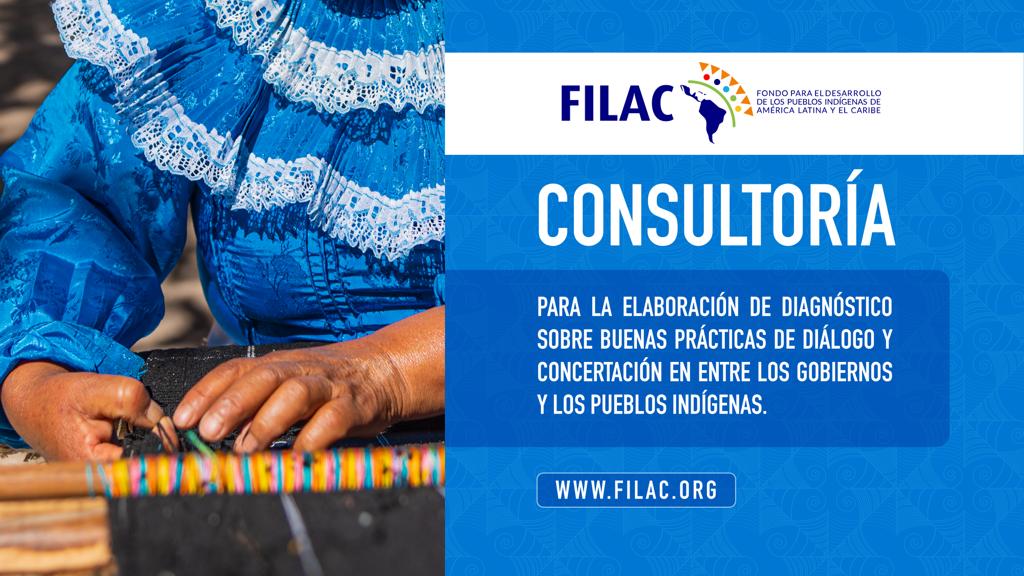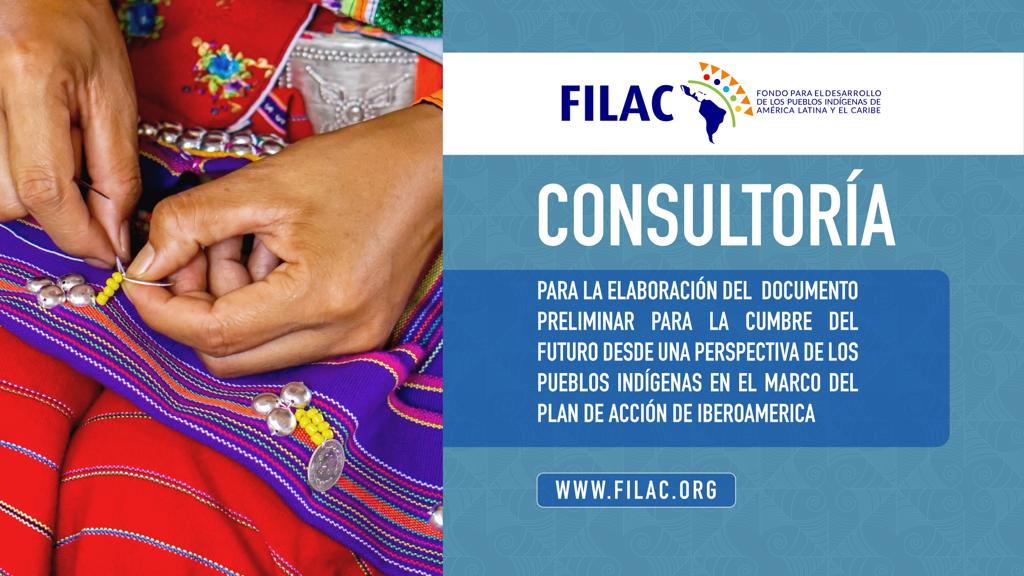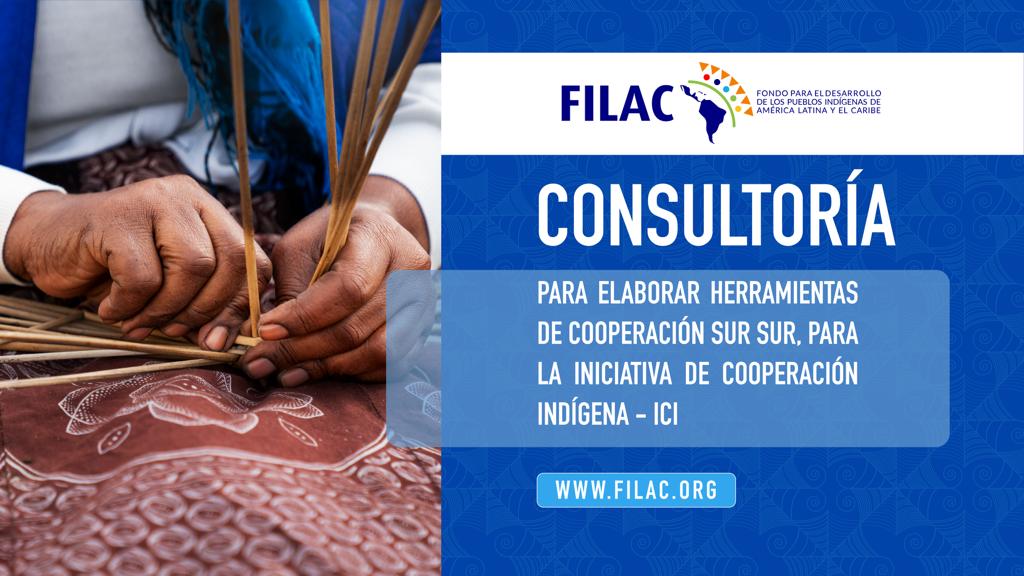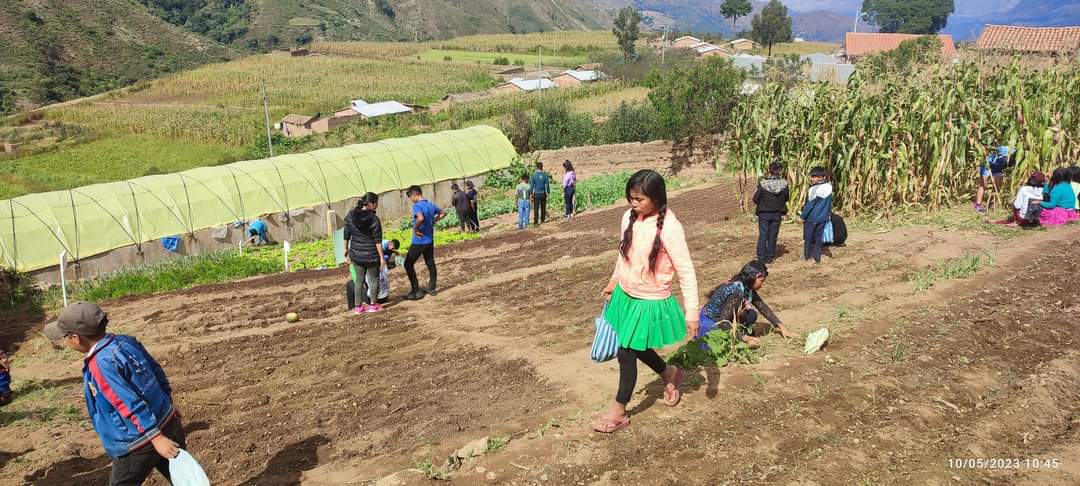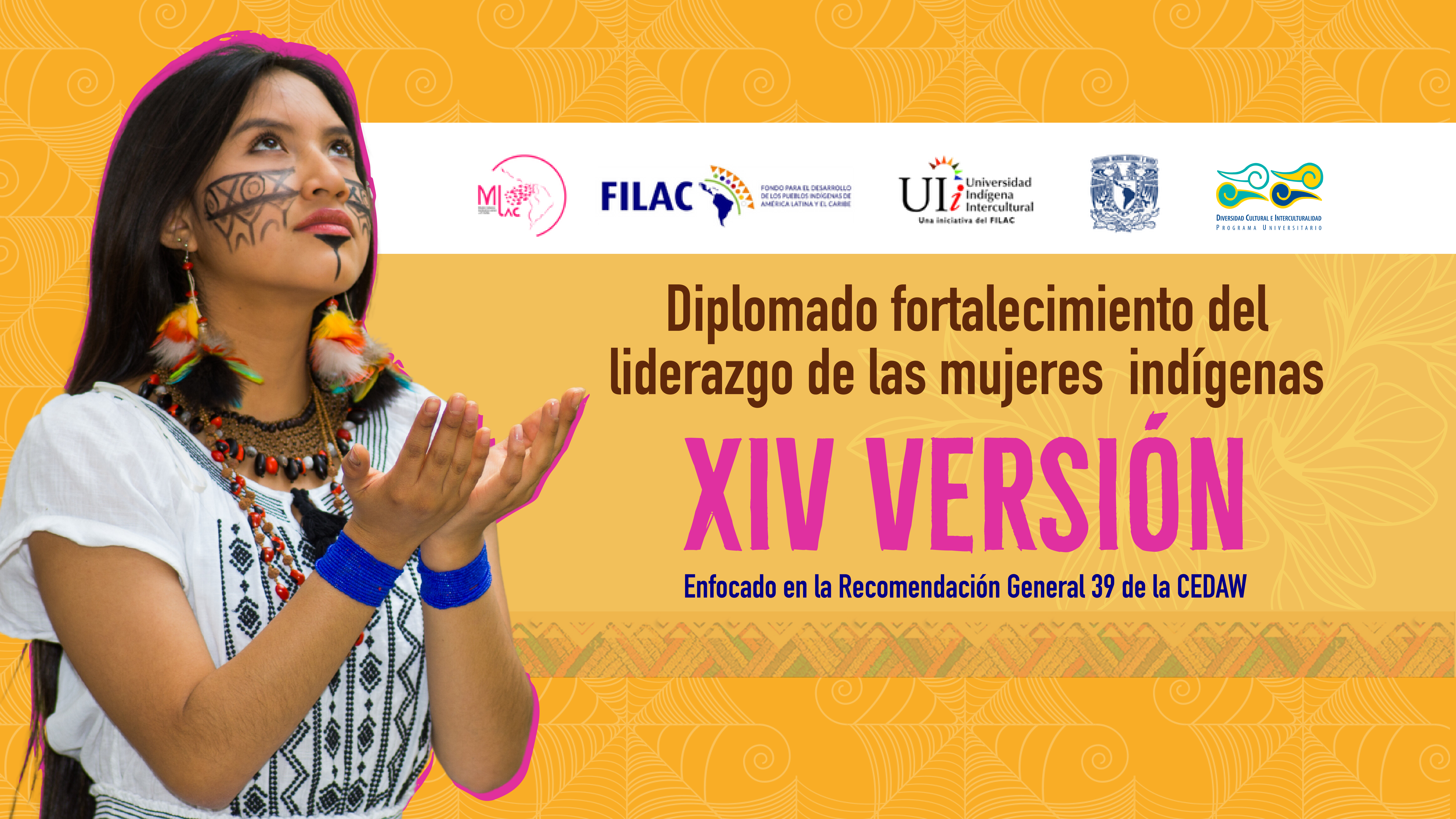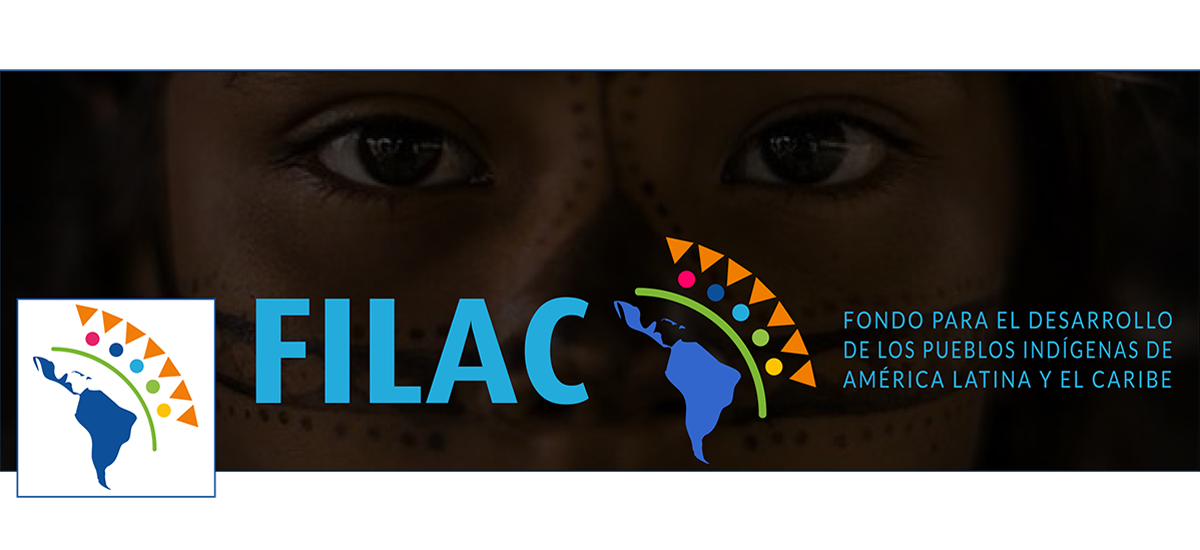Fund for the Development of Indigenous Peoples of Latin America and the Caribbean – FILAC
Heritage of the peoples
The Fund for the Development of Indigenous Peoples of Latin America and the Caribbean (FILAC) is an international body of public law created in 1992 by the II Ibero-American Summit of Heads of State and Government, held in Madrid, Spain.
FILAC supports the self-development processes of indigenous peoples, communities, and organizations in the region, and promotes Good Living-Living Well as an alternative to guarantee environmental sustainability, respect for the fundamental rights of the human being, and dialogue between the main actors of indigenous development: Indigenous Peoples, governments, civil society, academia, entrepreneurs and others.
This intergovernmental body, unique because its governing bodies are held by representatives of Governments and Indigenous Peoples on an equal footing, is today a Permanent Observer of the United Nations General Assembly, which allows it to participate in debates on issues of interest to all the peoples of the world.
Throughout its almost 30 years of experience, FILAC has designed and implemented initiatives to promote and support the development of Indigenous Peoples and has been reaffirming its role as «facilitator of dialogue for the construction of consensus among indigenous development actors».
As of 2018, it monitors and accompanies the implementation of the Ibero-American Plan of Action for the Implementation of the Rights of Indigenous Peoples
Vision
Our vision is to see Indigenous Peoples recognized and respected in the full exercise of their rights, cultures and identities, with solid organizations, strengthened in their administrative, technical, economic, political, social and cultural capacities through their own sustainable development processes that, in intercultural coexistence, incorporate their identities in the development and economic and democratic management of the national States of Latin America.
Mission
Our mission is to promote Good Living-Living Well as an alternative of dignified life for indigenous peoples, nationalities and communities of Latin America and the Caribbean, through the full exercise of human and collective rights and interculturality as a form of coexistence, generating equal opportunities and the overcoming of all forms of exclusion and domination, developing capacities to facilitate, advise technically and politically the processes of dialogue between States and Indigenous Peoples.
Characteristics of FILAC
Only joint international body
Due to its joint composition, FILAC has generated dialogue processes to value a heritage of the Indigenous Peoples cultivated since ancient times: the culture of peace and consensus, respect for life, nature, cultural and spiritual diversity as a principle of their historical continuity as peoples. The vast majority of its communities inhabit areas of great ecological and strategic value for human life.
FILAC, a space for dialogue
Space for dialogue among Indigenous Peoples, governments, civil society, academia, businesspeople and established various advocacy and consultation negotiation with the conviction that the time has come to turn to the future to equity, dignity, and human solidarity, to listen to those who endured and endure the problems and were never consulted. FILAC managed to contribute to the adoption of international and national instruments for the defense and promotion of the collective rights of Indigenous Peoples.
Commitment to sustainable development
FILAC emphasizes that the world needs new ideas and in communities there is much to listen to in order to achieve the Sustainable Development Goals. The actions conducted from its different programs, for example the support for gender equality, the revitalization and protection of indigenous languages, the promotion of development with culture and identity of the Indigenous Peoples of Latin America and the Caribbean, allow advances in the 2030 Agenda.
Coordination
FILAC coordinates and works with different indigenous organizations and institutions at various levels, including the Regional Indigenous Platform, work that is permanently expanded 58.2 million indigenous people in Latin America and the Caribbean.
Governing bodies of FILAC?
General Assembly
The General Assembly is made up of a delegate from the governments and one from the Indigenous Peoples of each Member State. It meets every two years on the invitation of the Presidency of the Board of Directors and makes all decisions by consensus.
Board of Directors
The Board of Directors is elected by the General Assembly and is made up of 12 members: six representatives of Indigenous Peoples and six of governments, of which three represent Latin American States and three represent extra-regional States.
Executive Committee
The Board of Directors elects at its first meeting the Executive Committee, composed of a Presidency and two Vice-Presidencies, which functions in permanent representation of the organization. It works in a collegial manner and when the Assembly is in recess it meets every six months on a regular basis or as many times as necessary to meet the institutional requirements, at the invitation of the Presidency.
Technical Secretariat
The Technical Secretariat, made up of a team of highly qualified technicians, is the operating arm. It oversees the technical and administrative management of FILAC. The responsibility for conducting and ensuring the proper functioning of this body lies with the Technical Secretary, who is appointed by the Board of Directors after a competitive and transparent selection process.
58.2 million indigenous people in Latin America and the Caribbean
In Latin America and the Caribbean, it is estimated that there are 58.2 million indigenous people (2018) and approximately 826 Indigenous Peoples (ECLAC, 2014); at least 462 Indigenous Peoples in the region have fewer than 3,000 inhabitants and some even have fewer than five people.
Approximately 200 Indigenous Peoples are in voluntary isolation or initial contact (Brazil, Peru, Colombia, Bolivia, Paraguay, Ecuador, and Venezuela); and there are some 108 cross border peoples, that is, their populations and settlements are distributed in territories that correspond to different countries nowadays.
The Indigenous Peoples of the region offer cultural, linguistic, territorial diversity; different histories, forms of organization, worldviews, visions of life and development priorities; own institutions and systems to manage the education and health of its members, the governance, and forms of management of social life, religion and belief, millenary technical and scientific knowledge
Which countries make up FILAC?
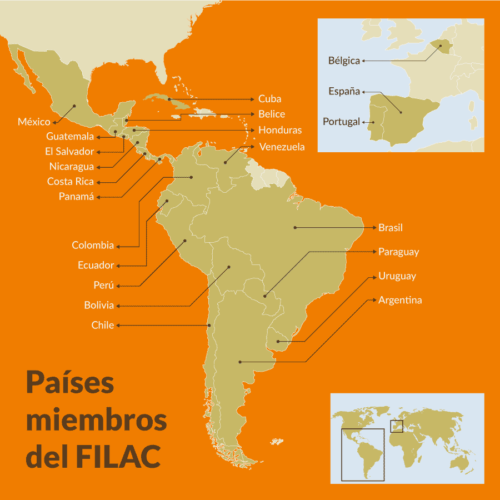
Institutional Strategic Plan «Change Wisely»
FILAC follows the guidelines of its Institutional Strategic Plan 2017-2027 «Change Wisely». This document sets out three flagship programs:
Dialogue and consultation
Its objective is to promote or deepen national and international dialogue processes aimed at defining, building, and implementing public policies consistent with the recognition and protection of the individual and collective rights of Indigenous Peoples.
Economic development with identity
Oriented to support the design and implementation of processes and initiatives promoting development with identity, focused on the Good Living-Living Well of Indigenous Peoples. This is consistent with the recognition and protection of the economic, social, cultural, political, and environmental rights of indigenous peoples, communities and organizations.
Education for equity
Aimed at promoting intercultural processes of training, research, construction, systematization and dissemination of indigenous knowledge, and technologies.
In addition, FILAC has two cross-cutting programs: that of indigenous youth and women, who within the Strategic Plan «Change Wisely», are the priority groups in the implementation of the FILAC Programs.
Action lines
Regional Observatory on the Rights of Indigenous Peoples-ORDPI
The Regional Observatory of Indigenous Peoples (ORDPI) conducts studies, prepares specialized reports and organizes databases on various topics that are of interest to Indigenous Peoples, governments, institutions, indigenous, international and academic organizations.
The technical materials developed — reports on indigenous women, revitalization of indigenous languages, legal and institutional frameworks, among others — are useful tools for collaborating in the search for solid agreements among participants in national and regional dialogue processes.
Women – young people
The full participation of indigenous women and youth is a priority in all the work conducted by FILAC. We work to make visible and strengthen the full and effective participation of indigenous women in the generation of public policies aimed at the attention and prevention of the different forms of violence of which they are victims.
In addition, FILAC created the Indigenous Youth Program with the aim of promoting the empowerment of indigenous youth and providing them with tools to promote their collective rights.
ICI – Sumaq Kawsay
The Sumaq Kawsay Indigenous Cooperation Initiative (ICI) seeks to promote and support the processes of dialogue and joint work among Indigenous Peoples, governments, and other relevant actors for the development of Good Living – Living Well.
The ICI provides support to Indigenous Peoples to self-manage their development processes with identity and to State institutions to incorporate this perspective into their public policies.
It provides information, technical advice, strengthens the capacities of indigenous and governmental actors and it also facilitates the creation of conditions for joint work.
A central axis of the ICI is the promotion of South-South exchange, especially among communities so that they can learn about diverse experiences, traditional knowledge and the application of new technologies that enhance their current capacities. At the same time, ICI assists in channeling financial resources to support emerging situations in communities that require immediate help, including indigenous women and youth.
Intercultural Indigenous University – UII
The Intercultural Indigenous University (UII) is a regional higher education initiative aimed at strengthening the capacities of indigenous men and women across the continent.
The certification programs, courses and programs of different levels offered by the IAU ensure the participation of indigenous women and youth and promote intercultural and intergenerational dialogue. Its pedagogical activities are based on interculturality, interepistemic and interscientific dialogue, the recognition, promotion, and protection of individual and collective rights, as well as the spirituality of Indigenous Peoples.
The participation of the Itinerant Indigenous Chair –made up of scholars, experts, academics, leaders, and indigenous specialists– in the entire academic offer of the UII gives it unique training characteristics.
The voice of FILAC in the world
FILAC brings the voice of the Indigenous Peoples of Latin America and the Caribbean to the different scenarios of global, regional, and subregional multilateral debate. In these areas, FILAC presents and promotes initiatives with a comprehensive vision aimed at changing the development paradigm and taking up the legacy of the ancestral wisdom of Good Living – Living Well as an alternative to guarantee environmental sustainability and respect for the fundamental rights of the human being.
